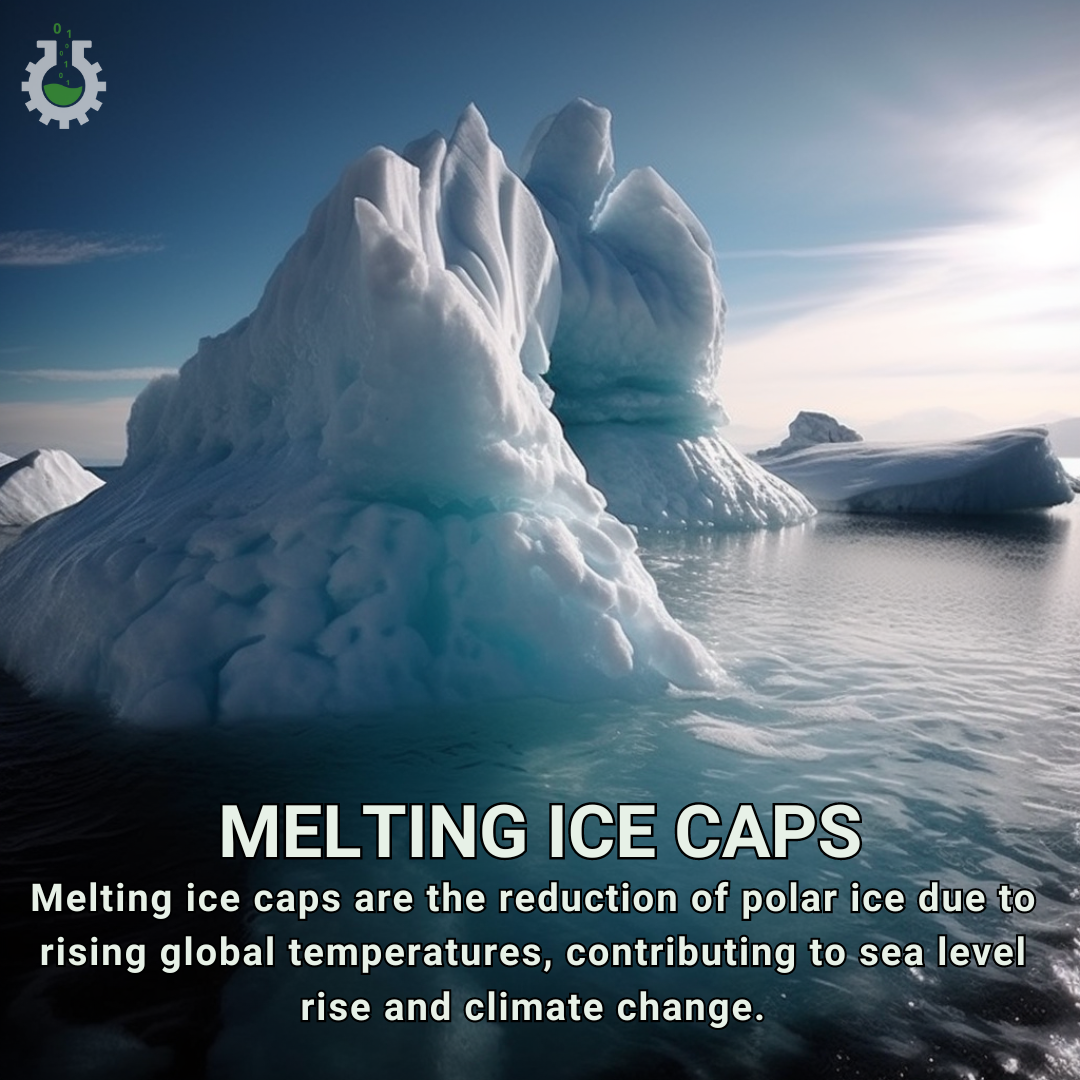May 30, 2024
Climate Change Poster Collection of the Day – Melting Ice Caps
Book a Demo
Today’s Climate Change Poster Collection highlights Melting Ice Caps. The melting of the polar ice caps is one of the most visible and alarming indicators of climate change, a phenomenon that has far-reaching consequences for our planet. The Earth’s polar regions, particularly the Arctic and Antarctic, are experiencing unprecedented rates of ice melt due to rising global temperatures. This dramatic reduction in ice cover is not just a localized issue but a global one, with implications that extend far beyond the polar regions. The primary driver behind this melting is the increase in greenhouse gases, such as carbon dioxide and methane, which trap heat in the Earth’s atmosphere and cause temperatures to rise. Over the past century, human activities, including the burning of fossil fuels, deforestation, and industrial processes, have significantly increased the concentration of these gases, leading to a warming effect known as global warming.
As the polar ice caps melt, several critical processes are set into motion. One of the most immediate effects is the rise in sea levels. The melting ice contributes directly to the volume of water in the oceans, leading to higher sea levels that threaten coastal communities around the world. Low-lying areas, such as Bangladesh, the Maldives, and parts of the United States, are particularly vulnerable to flooding, which can displace millions of people, disrupt economies, and lead to loss of life and property. Additionally, the melting ice caps contribute to the loss of habitat for a wide range of species, including polar bears, seals, and penguins, which rely on ice for hunting, breeding, and shelter. The decline in ice cover also affects the indigenous communities in the Arctic, who depend on the ice for their traditional way of life, including hunting and fishing.
The melting ice caps also have a profound impact on global weather patterns. The polar regions play a crucial role in regulating the Earth’s climate by reflecting sunlight back into space. As the ice melts, less sunlight is reflected, and more is absorbed by the darker ocean waters, leading to further warming in a feedback loop known as the albedo effect. This process accelerates the rate of ice melt and contributes to more extreme weather events, such as stronger hurricanes, prolonged droughts, and intense heatwaves. The changes in temperature and precipitation patterns can disrupt agriculture, water supply, and energy production, posing significant challenges for food security and economic stability worldwide.
Moreover, the melting ice caps release stored greenhouse gases, such as methane, from permafrost and ice sheets, further exacerbating global warming. The release of these gases creates a vicious cycle, where warming leads to more ice melt, which in turn releases more greenhouse gases, accelerating the warming process. This cycle has the potential to reach tipping points, beyond which the effects of climate change could become irreversible and catastrophic.
Addressing the issue of melting ice caps requires a concerted global effort to reduce greenhouse gas emissions and mitigate the impacts of climate change. Transitioning to renewable energy sources, such as solar, wind, and hydroelectric power, can significantly reduce our carbon footprint. Additionally, implementing energy-efficient practices, protecting forests, and promoting sustainable agriculture can help sequester carbon and reduce emissions. International cooperation and strong policy measures are essential to achieving these goals and ensuring a sustainable future for our planet.
The melting ice caps are a stark reminder of the urgent need to address climate change. The consequences of inaction are dire, with rising sea levels, disrupted ecosystems, and extreme weather events posing significant threats to life on Earth. By understanding the connection between ice cap melting and climate change, we can take informed actions to mitigate its effects and protect our planet for future generations. The time to act is now, and every effort counts in the fight against climate change.
Discover an inspiring collection of climate change poster.



